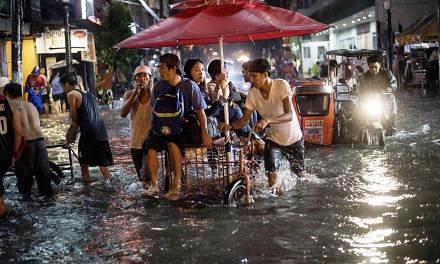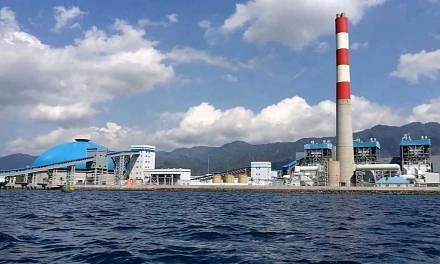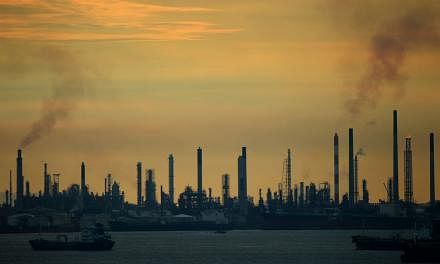SINGAPORE - All economic activity ultimately depends on services provided by nature, estimated to be worth around US$125 trillion (S$173 trillion) a year, says a new report by the conservation group World Wide Fund For Nature (WWF).
"It's clear that nature is not just a 'nice to have'," says WWF's Living Planet Report. A healthy planet is fundamental to the future of human society. Yet, mankind is stripping the planet bare, destroying species, fouling waterways and filling the oceans with plastic waste.
But what are these services?
At their simplest, they are things that people often take for granted - clean air, clean water, clean beaches and forests brimming with wildlife.
Oceans and coral reefs provide food and livelihoods to hundreds of millions of people. Forests clean the air, regulate the local climate and retain water for rivers, while healthy soils are essential to grow crops. Mountains and glaciers are key sources of water for major river systems, from the Ganges to the Indus and Yangtze.
Forests are also a source of medicines used to treat diseases and are home to many species, some still undiscovered.
Yet, many of these benefits are taken for granted and are poorly regulated. Healthy ecosystems need to maintain a balance between the myriad plant and animal species. But mankind is disrupting this balance through habitat destruction, climate change, pollution, and even poaching.
"Exploding human consumption is the driving force behind the unprecedented planetary change we are witnessing, through the increased demand for energy, land and water," says the report, adding that few areas on the planet are untouched.
Consumer lifestyles feed a voracious demand for commodities, such as minerals, soy, palm oil and timber, that is destroying huge areas of forest and creating polluted landscapes.
Yet, many people living in cities are unaware or feel they are not directly affected by environmental damage and do not understand the consequences.
For example, about 87 per cent of all flowering plant species are pollinated by animals such as bees, wasps and moths, and crops that are partially pollinated by animals account for 35 per cent of global food production. "Pollination increases the global value of crop production by US$235-577 billion per year to growers," says the report. So ensuring healthy populations of pollinators is key to crop production.
Freshwater habitats, such as lakes, rivers and wetlands, are key to human societies. Yet, they are also the most threatened, strongly affected by factors including habitat destruction, pollution, invasive species, overfishing and climate change, the report says.
"There cannot be a healthy, happy and prosperous future for people on a planet with a destabilised climate, depleted oceans and rivers, degraded land and empty forests, all stripped of biodiversity, the web of life that sustains us all," said Mr Marco Lambertini, director-general of WWF International, in the report.











